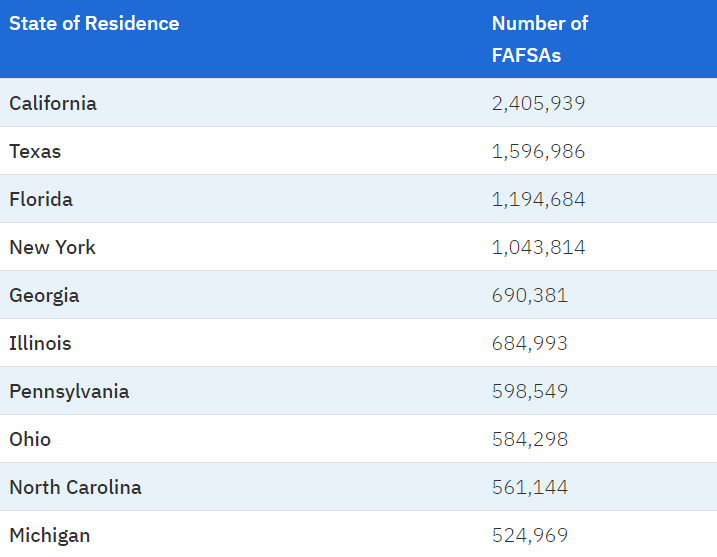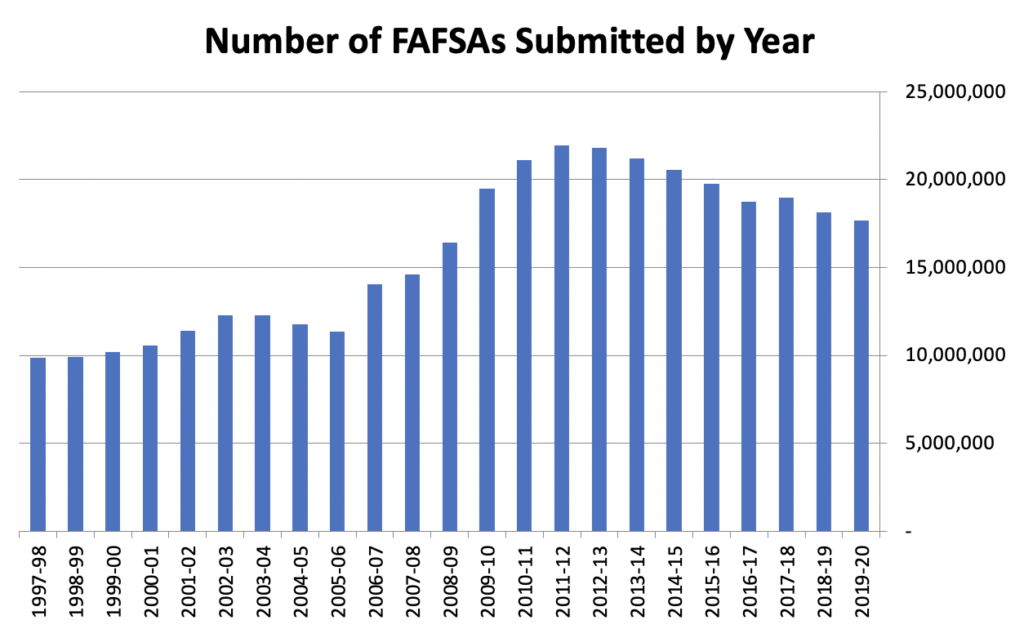
Moonpreneur
- Your eligibility for student aid is determined by the Free Application for Federal Student Aid, or FAFSA.
- It is still worthwhile to complete the FAFSA even if you don’t believe you qualify for financial help.
- You can use FAFSA aid for the summer in addition to the fall and spring semesters.
- The FAFSA can be submitted online, through a mobile app, or by mailing a PDF form.
What is FAFSA?
The Free Application for Federal Student Funding, or FAFSA, is a form that establishes your eligibility for several types of student funding. To establish how much financial aid you will receive, you must produce several pieces of documentation.

Source: Savingforcollege
How does the FAFSA work?
Most colleges and universities use the data from the FAFSA to determine your financial assistance package for undergraduate or graduate study, which includes funding from both your institution and the government. Your FAFSA application allows you to list up to 10 schools, but you can change your list after initially submitting the form.
Are summer classes covered in FAFSA?
Does FAFSA cover Summer Classes? Then fret not because, Yes, you can be eligible for federal financial help for summer courses if you won’t have used up all of your academic year’s allotment and will be enrolled at least half-time. Your FAFSA is the first step, and your specific institution chooses which FAFSA to utilize for the summer session.

You might not need to submit a new FAFSA for the summer if you previously submitted one for the previous fall/spring school year. Alternatively, submit a fresh FAFSA as soon as possible if they require one for summer classes. Although you should be quick as a first-come, first-served policy governs the distribution of federal aid.
FAFSA offers what types of financial aid?
Through the FAFSA, you can apply for grants, work-study opportunities, and loans.
1. Grants: Typically, these are provided to those who have a serious financial need.
2. Work-study Opportunities: Students who want financial help can apply for work-study financing, which provides part-time jobs to pay their academic fees.
3. Loans: Financial necessity is a need for subsidized loans; however, it’s not a requirement for unsubsidized or Direct PLUS loan eligibility.
Since loans must be repaid, you should consider them only after using all of your grant and work-study options, as federal loans have a set interest rate.
Deadlines
Federal Deadlines – (2023 and 2024)
- Academic Year 2022-2023: The deadline for online applications is June 30, 2023, at 11:59 p.m. Central Time (CT). Any change must be made by September 9, 2023, at 11:59 p.m. CT.
- Academic Year 2023-2024: The deadline for online applications is June 30, 2024, at 11:59 p.m. Central Time (CT). Any change must be made before September 14, 2024, at 11:59 p.m. CT.
College Deadlines
There may be different deadlines for various colleges and schools. You will have to inquire as to whether the school considers the date the FAFSA form is received or the date it is processed to be the application deadline.
State Deadlines
These deadlines generally depend on the state.
Conclusion
Even though the FAFSA does offer financial aid choices for summer courses, it’s important to be aware of your institution’s specific policies and additional help options. Making decisions on how to pay for your summer education can be done with preparation, communication with your financial aid office, as well as a research of alternate options.
Moonpreneur is on a mission to disrupt traditional education and future-proof the next generation with holistic learning solutions. Its Innovator Program is building tomorrow’s workforce by training students in AI/ML, Robotics, Coding, IoT, and Apps, enabling entrepreneurship through experiential learning.

























